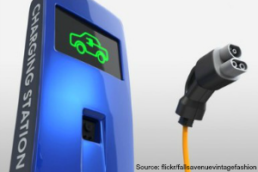Press release on EPBD
Platform for Electro-Mobility reaction to Council position on EPBD
EU ministers have agreed on a common approach to the revision of the Energy Performance of Buildings Directive (EPBD). The European Commission’s legislative proposal for the EPBD introduced obligations for EU countries to ensure adequate and future-proof pre-equipping of buildings for electric vehicle (EV) recharging points.
These obligations have, however, encountered strong resistance from EU Member States due to concerns over costs and potential negative impacts on renovation incentives, and have as a result been watered down. While this lowered level of ambition is regrettable, core elements remain in place and it will now be up to the European Parliament to strengthen these as it gets closer to finalising its own position.
A spokesperson for the Platform for Electro-Mobility said: “Pre-equipping buildings for the installation of smart EV charging points is crucial to satisfy EV charging needs and foster the wider uptake of electro-mobility. In fact, 90% of the electricity charged by an EV during its lifetime actually takes place in the private domain.”
The ability of charging infrastructure to control the charging process is crucial for integrating high numbers of EVs into the electricity system and contributes to optimising the energy use of buildings. Therefore, the directive should require the installation of smart charging points, which should be considered part of the building's technical equipment and included in the ‘smartness indicator’.
When it comes to non-residential buildings, the Council compromise text retains the obligation for new and substantially renovated buildings with more than 10 parking spaces to install at least one recharging point, together with ducting infrastructure [1] for at least one in every three parking spaces.
Ducting infrastructure is a future-proof and cost-effective solution, the installation cost of which is minimal as compared to the total cost of constructing or renovating a building. By comparison, failure to ensure ducting infrastructure would entail costs up to nine times higher if a building is to be retrofitted at a later stage. In light of this, the Platform for Electro-Mobility supports an extension of ducting infrastructure requirements to all parking spaces, which has already been taken on board by Council in the case of residential buildings.
On a more positive note, the Platform acknowledges the Council’s insertion of obligations to facilitate deployment of recharging points in existing buildings. Today, long and uncertain approval procedures act as a major barrier for owners and tenants to deploy charging points in shared residential and commercial buildings. If these hurdles are not removed, putting in place ducting infrastructure cannot have its full positive impact. Such ‘right to the plug’ measures have already been successfully implemented in various EU countries including Spain, France, and Portugal.
The spokesperson concluded: “All eyes now turn to the European Parliament, which is set to agree its final position in November before entering negotiations with governments and the European Commission. Strengthening this directive offers a once-in-a-decade opportunity to ensure European buildings’ readiness for the mobility needs of tomorrow.”
The Platform for Electro-Mobility is an alliance of organisations from across industries and transport modes representing manufacturers, infrastructure managers, operators and users of all types of vehicles as well as cities, civil society and other stakeholders. It shares a vision of electro-mobility for surface transport delivered through multiple modes including electric bikes, cars and vans, trucks, buses, rail and other public transport. The Platform has been created to drive forward this transformation.
Note to editors:
[1] Also referred to as ‘pre-tubing’ or ‘conduits’ to enable the later installation of EV recharging points.
Event - 28 March - EU Parliament
Electrifying transport in Europe has the potential to increase all Europeans’ access to cheaper and more reliable mobility. Electro-mobility also forms a central component of the EU’s drive to decarbonize its whole economy in line with the Paris Agreement.
In the context of the European Commission’s “Clean Energy for all Europeans” package, the Platform for Electro-mobility is organizing this event to discuss how we can accelerate the transition to electro-mobility. How do we roll out more charging infrastructure? How do we overcome regulatory bottlenecks at EU and national level? What is the right role of alternative fuels in moving us towards full electro-mobility?
The Platform is grateful to Ismail Ertug MEP for hosting our event in the European Parliament. Each of the Platform’s 25 members will be sending expert representatives and we will also be hearing from the deputy head of Vice-President Maroš Šefčovič cabinet, as well as Member State transport attaches and NGOs.
The full programme is below.
Join us and add your voice to the debate.
[su_service title="When?" icon="icon: calendar" size="20"]Tuesday, March 28, 2017 - 17:30 to 20:00[/su_service]
[su_service title="Where?" icon="icon: map-marker" size="20"]European Parliament / Room P3C050 / 1000 Brussels / Belgium[/su_service]
Programme:
17:30 - Registration
18:00 - Start of the event
Welcome speech by Ismail Ertug (S&D), Member of the European Parliament, Member of the TRAN and EMIS Committees.
Introduction: Platform presentation by Chairman – Nicolas Erb, EU Director Alstom
Keynote speaker: Christian Linder, member of the Šefčovič Cabinet
Panel Discussion moderated by Greg Archer, Director Clean Vehicles, T&E
- European Commission Representative: Peter Handley, Secretary General, European Commission
- EU Member State Representative: Dr. Klaus Bonhoff, Managing Director German agency NOW
- NGO representative: Frederic Hauge, Founder and President of Bellona
- Utilities representative: Tina Zierul, E-Mobility Program Manager at EON Technologies
- Transport representative: Umberto Guida, Director Research & Innovation, UITP
19:30-20:00 - Networking session
[maxbutton id="2" url="https://docs.google.com/a/transportenvironment.org/forms/d/e/1FAIpQLSfo34VJVYrewZ4dQMJPAtRbWgtyZ_2UMWzIIMgrmM4HHAuF-A/viewform" ]
Deadline to register for the event: March 23 (request from the European Parliament security services)




